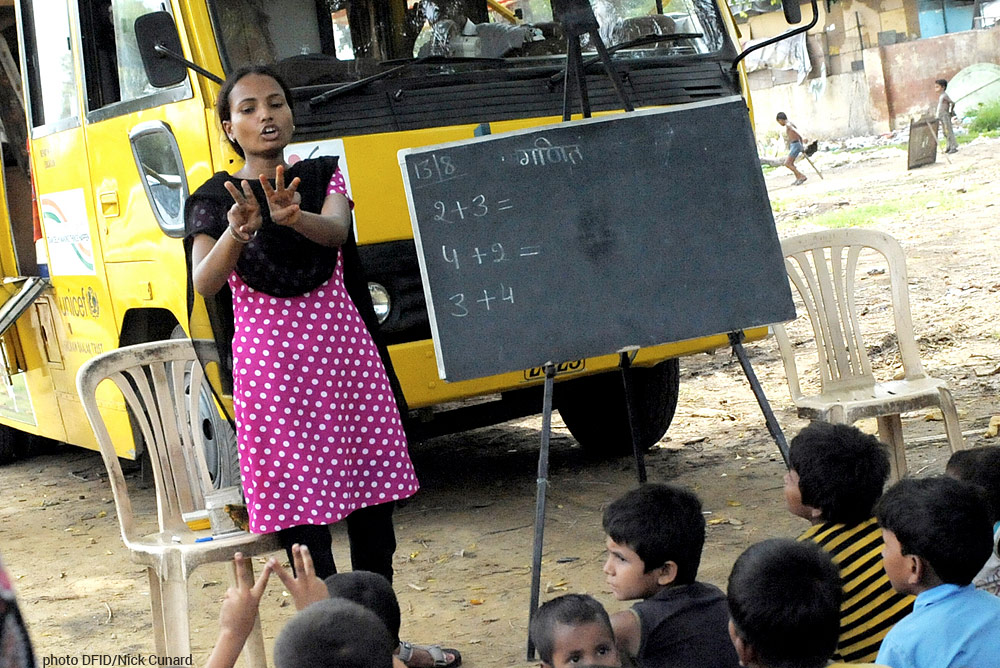The UK House of Commons’ International Development Committee has just published its report ‘DFID’s work on education: Leaving no one behind?’ The report assesses the Department for International Development’s (DFID) work in global education and its important contributions towards achieving the education Sustainable Development Goal (SDG4) of ensuring quality and inclusive education for all by 2030.
The report asserts that “One of the central aims of the SDGs is to ‘leave no one behind,’ yet to achieve this in education will require a substantial increase in finance, access and quality.” To contextualize its recommendations, the Committee cites the Education Commission’s Learning Generation report costing estimates, projections, aid analysis, and targets for international education financing.
Closing the education financing gap
Noting the urgent need to close the education funding gap, the Committee concludes that “DFID should support the new International Financing Facility for Education (IFFEd), as an additional mechanism for leveraging funding into the provision of global education.” The Education Commission proposes this global Facility to create a “financing compact between developing countries and the international community.”
In addition, the Committee supports the full replenishment of the Global Partnership for Education and references the Education Cannot Wait fund when highlighting the need to continue to support education in emergencies.
The report also highlights the call to dedicate 15% of all international assistance to education, a target put forth by the Education Commission and advocated by civil society. Of equal importance, the report acknowledges the need to increase DFID’s investments in education in the early years.
Read the International Development Committee’s key findings here, and download the full report here.

